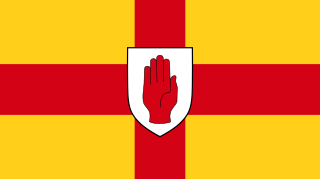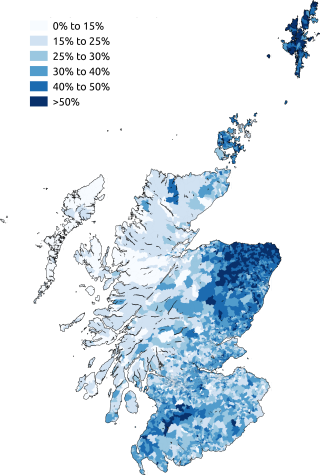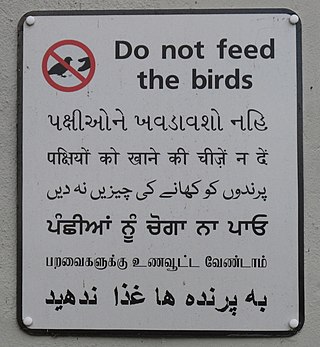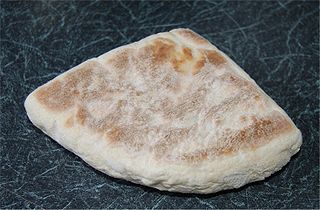Ulster Scots, may refer to:
Ulster Scots, may refer to:
Scotch-Irish or Scots-Irish may refer to:

Ulster is one of the four traditional or historic Irish provinces. It is made up of nine counties: six of these constitute Northern Ireland ; the remaining three are in the Republic of Ireland.

Scots is an Anglic language variety in the West Germanic language family, spoken in Scotland and parts of Ulster in the north of Ireland. Most commonly spoken in the Scottish Lowlands, Northern Isles, and northern Ulster, it is sometimes called Lowland Scots to distinguish it from Scottish Gaelic, the Goidelic Celtic language that was historically restricted to most of the Scottish Highlands, the Hebrides, and Galloway after the sixteenth century; or Broad Scots to distinguish it from Scottish Standard English. Modern Scots is a sister language of Modern English, as the two diverged independently from the same source: Early Middle English (1150–1300).

Ulster Scots or Ulster-Scots, also known as Ulster Scotch and Ullans, is the dialect of Scots spoken in parts of Ulster, being almost exclusively spoken in parts of Northern Ireland and County Donegal. It is normally considered a dialect or group of dialects of Scots, although groups such as the Ulster-Scots Language Society and Ulster-Scots Academy consider it a language in its own right, and the Ulster-Scots Agency and former Department of Culture, Arts and Leisure have used the term Ulster-Scots language.

English, in various dialects, is the most widely spoken language of the United Kingdom, but a number of regional and migrant languages are also spoken. Regional indigenous languages are Scots and Ulster Scots and the Celtic languages, Irish, Scottish Gaelic, Welsh and, as a revived language with few speakers, Cornish. British Sign Language is also used. There are also many languages spoken by immigrants who arrived recently to the United Kingdom, mainly within inner city areas; these languages are mainly from continental Europe and South Asia.

Soda bread is a variety of quick bread made in many cuisines in which sodium bicarbonate is used as a leavening agent instead of yeast. The basic ingredients of soda bread are flour, baking soda, salt, and buttermilk. The buttermilk contains lactic acid, which reacts with the baking soda to form bubbles of carbon dioxide. Other ingredients can be added, such as butter, egg, raisins, or nuts. Quick breads can be prepared quickly and reliably, without requiring the time and labor needed for kneaded yeast breads.

The Ulster Scots people are an ethnic group descended largely from Scottish and English settlers who moved to the north of Ireland during the 17th century. There is an Ulster Scots dialect of the Scots language.
Scottish language may refer to:
William Christie may refer to:
Craic or crack is a term for news, gossip, fun, entertainment, and enjoyable conversation, particularly prominent in Ireland. It is often used with the definite article – the craic – as in the expression "What's the craic?", meaning "How are you?" or "What's happening?". The Scots and English crack was borrowed into Irish as craic in the mid-20th century and the Irish spelling was then reborrowed into English. Under both spellings, the term has become popular and significant in Ireland.
Scotch-Irish AmericansAmericans are American descendants of primarily Ulster Scots people who emigrated from Ulster to the United States during the 18th and 19th centuries. Their ancestors had originally migrated to Ulster mainly from the Scottish Lowlands and Northern England in the 17th century. In the 2017 American Community Survey, 5.39 million reported Scottish ancestry, an additional 3 million identified more specifically with Scotch-Irish ancestry, and many people who claim "American ancestry" may actually be of Scotch-Irish ancestry.

Ulster English, also called Northern Hiberno-English or Northern Irish English, is the variety of English spoken mostly around the Irish province of Ulster and throughout Northern Ireland. The dialect has been influenced by the local Ulster dialect of the Scots language, brought over by Scottish settlers during the Plantation of Ulster and subsequent settlements throughout the 17th and 18th centuries. It also coexists alongside the Ulster dialect of the Irish (Gaelic) language.
The Ulster-Scots Agency is a cross-border body for Ireland which seeks to "promote the study, conservation and development of Ulster-Scots as a living language, to encourage and develop the full range of its attendant culture, and to promote an understanding of the history of the Ulster-Scots [people]."

MacShane or McShane is an Irish surname. It derives from the Gaelic Mac Seáin or Mac Seagháin and evolved from the given name Shane, a derivative of John. Historically, the MacShanes from Ulster are a branch of the O'Neills, while in County Kerry, the surname was adopted by the Fitzmaurices.

Drumardagh is a townland in the east of County Donegal in Ulster, Ireland. The townland is about 5 kilometres east of Letterkenny in the Laggan district of East Donegal. The townland is just outside the village of Manorcunningham. The Isle Burn flows along the eastern boundary of the townland. The Irish name means 'the Ridge (drum) on the High Place (ardagh)', and it is this elevation that gives Drumardagh its commanding views over Lough Swilly, from Glenswilly to Inch Island, and beyond to the peaks of the Fanad and Inishowen peninsulae.
Hi Uncle Sam! is a poem by Irish poet Rev. William Forbes Marshall. It asks of Americans that they remember the input and support of immigrants from Ulster on the United States throughout the American Revolution.
Ulster Protestants are an ethnoreligious group in the Irish province of Ulster, where they make up about 43.5% of the population. Most Ulster Protestants are descendants of settlers who arrived from Britain in the early 17th century Ulster Plantation. This was the settlement of the Gaelic, Catholic province of Ulster by Scots and English speaking Protestants, mostly from the Scottish Lowlands and Northern England. Many more Scottish Protestant migrants arrived in Ulster in the late 17th century. Those who came from Scotland were mostly Presbyterians, while those from England were mostly Anglicans. There is also a small Methodist community and the Methodist Church in Ireland dates to John Wesley's visit to Ulster in 1752. Although most Ulster Protestants descend from Lowland Scottish people, many descend from English, and to a lesser extent, from Irish, Welsh and Huguenots.
Scottish-Irish Canadians or Scots-Irish Canadians are those who are Ulster Scots or those who have Ulster Scots ancestry and live in or were born in Canada. Ulster Scots are Lowland Scots people and Northern English people who immigrated to the Irish Province of Ulster from the early 17th century after the accession of James I to the English throne. This was known as the Plantation of Ulster.

John Semple was a seventeenth century minister in Ulster and Scotland. He began to preach after exhorting the people while leading the psalm-singing. His Presbyterian principles brought him into opposition to the policies of the civil authorities. He refused The Black Oath and was pursued by those sent from Dublin to apprehend non swearers. He relocated to Scotland and was named multiple times and threatened with severe punishment throughout his life including shortly before his death in his 75th year.
Irish-Scots or Hiberno-Scots may refer to::